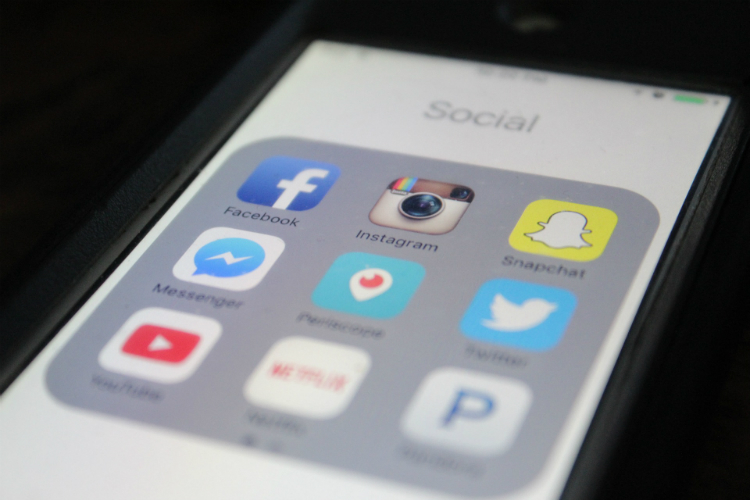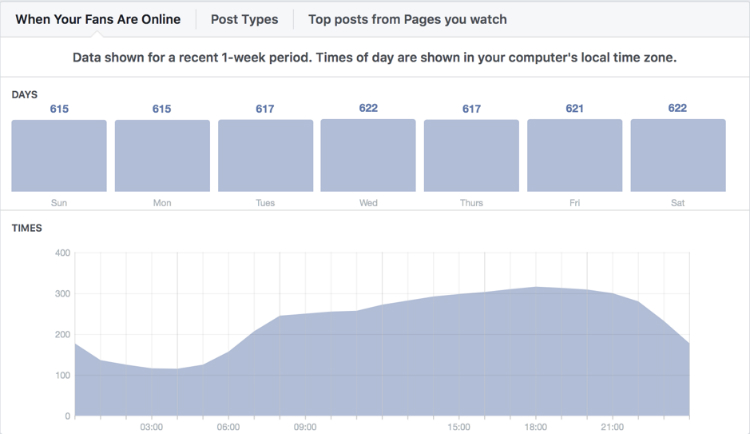Improve Your Facebook Results
Are you looking for ways to improve your Facebook results, without investing in advertising? Since you’re reading this, I think it’s safe to assume you are. Because let’s face it, Facebook might be one of the best, if not the best, social network for business marketing, but getting results is getting more and more difficult – especially if you’re not paying to boost a post or other Facebook ads. In this blog post, I want to give you my best tips for improving your Facebook results, organically.
Start using more hashtags
When Facebook first introduced hashtags to the popular platform, back in 2013, they didn’t particularly take off; at least, not even close to the extent of their popularity on platforms like Twitter and Instagram.
But, as time passed, people started using them more and more – and now, using hashtags in your Facebook posts can actually help you increase both your reach and your engagement.
In a recent test conducted by the Social Media Lab, they wanted to see whether using hashtags in their updates had any effect whatsoever on the updates’ success.
Although they didn’t expect it, it turns out that by using hashtags, not only did they improve their reach, but also their engagement.
However, as it turns out, the impact is not as big on reach (an increase of 4.4% in organic reach), but it was quite impressive when it comes to engagement: 60.61% higher engagement on average.
Their recommendations? Use no more than 5 hashtags per post (to avoid cluttering and putting off other users) and make sure they are relevant to your update. It’s that easy – then, continue experimenting with different hashtags, with different numbers of hashtags per post, and so on, to see how it affects your results.
Post media natively to Facebook
If you’ve posted a beautiful video to your YouTube account, or a photo that got loads of engagement on Instagram, for example, you might be tempted to share it to your Facebook account as well.
And there’s nothing wrong with that; you probably have different audiences anyway, and if your content is really good – why not reuse it and share it with as many people as possible? You’ll reach more people, get more engagement, and perhaps even some new followers to join.
However, if you are going to cross-post, post your media directly on Facebook, rather than share it from the initial social network.
There have been numerous studies on the subject, and most have found that when you past natively to Facebook, you increase your chances of getting more results. Some, in fact, have seen huge differences in organic reach; for example, one test found that by posting directly to Facebook, instead of cross-posting from Instagram, you can get up to 72.28% higher reach – this is quite the impressive difference, and definitely worth spending a few extra minutes to post your updates directly to your Facebook Page instead of cross-posting.
Partner up!
Getting results from Facebook is hard – OK, we’ve already established that, I know. Because it is so difficult, many Pages who share similar audiences have taken to partnering up and sharing each other’s’ posts on their own Page. Even big companies do it (the Wired Facebook Page, for example) – with plenty of fans.
How can you do this too?
First, start by finding the social influencers you think would work well with your Page. If you don’t have a lot of fans, don’t go directly to the big Pages; start smaller, with social influencers that have a relatively similar following to yours, but that are getting results:
- Are people engaging with them regularly? It doesn’t mean they need to have dozens of comments on each post, but enough to show that they have an interested audience
- What is their reach like? The big reason Pages partner up is because they want to reach more people – so, it’s essential to check what kind of reach the Pages you’re targeting have
You also need to make sure that the influencer you want to reach out to is relevant to your Page; are you covering similar subjects? Are your 2 audiences sharing similarities?
If the influencer isn’t relevant, then you simply won’t get the results you hope for.
Another important factor is the Pages’ influence and authority, which can be gleaned by taking a look at their engagement – after all, that is the main way that a Page can inspire a fan to take action.
Once you’ve put together a list of relevant, influential Pages, it’s time to reach out to them. The idea here is to offer them some kind of value in return and show them why a partnership would benefit you both. This is easier to do when both your Pages have similar numbers (fans, reach, engagement) as the trade-off is quite straightforward: you share mine and I’ll share yours, baby.
That’s why, ideally, you should start out with Pages with similar numbers. However, if you have something more to offer – something that a bigger Page would find of value – it’s definitely worth reaching out to bigger Pages in your niche, as they tend to have more authority in your industry, as well as more fans (so a bigger reach) and more engagement.
That’s not to say that smaller Pages don’t have their own value; in fact, I’ve often noticed that smaller social influencers can have a bigger impact than big ones, just because they have a much closer relationship with their fans. After all, the bigger you get on social media, the less time you have to actually engage with your fans, since there are too many.
Measure your results
Although there is plenty of useful Facebook marketing advice available online, one of the best ways to improve your overall results is to use your Facebook Page Insights and measure your social media results.
You don’t have to perform tests of your own just to find out what works; all you need to do is check your Insights regularly and truly understand them:
- Which posts get the most reach and engagement? Is it because they are videos, or photos, or text updates, for example, or is it because of their actual content? When you check your updates for reach and engagement, regularly, it will help you identify the common links between your best performing, as well as your worst performing posts, therefore helping you create better-targeted content in the future. Go to Posts -> Post types, to see exactly what kind of reach each type of post gets
- When are your fans online? You’ll find plenty of studies of when Facebook usage is at its peak, but the best thing to do is to check for yourself, using your Page Insights. Go to Posts – When your fans are online, to see exactly at what times your fans are online, as well as on what days:
- Look at your competitors: there is also a lot to learn from your competitors, and Pages similar to yours. Go to Posts -> Top Posts from Pages You Watch to add Pages to watch and check the results of any Pages in your list. You’ll be able to see exactly which of their posts were most successful in the past week, as well as how much engagement each one got. Like before, use this information to inform your own Facebook content strategy – for example, you might notice that your audience tends to prefer videos, or that they start talking and commenting when a particular subject is brought up, and so on.
Ideally, try to experiment with different posting times, posting frequencies, hashtag use, and so on, just to see how it affects your overall results. As I mentioned earlier, every Page is different (or rather, every audience is different) and the best way to understand what content works for you, as well as posting times and so on, is to test it yourself.
Conclusion
You don’t need to rely only on ads to get results from Facebook – with a good social media strategy and by employing the tactics discussed in this article (and with great content to post, of course), you can improve your reach and engagement without spending a penny. Not to mention, most tactics are easy to employ – using more hashtags whenever you post media or a text update, posting content directly on Facebook, and using your Insights to inform your Facebook marketing strategy.
Another helpful resource would be to check out these Facebook Ad Spy Tools.
What other methods and strategies work for your Facebook Page? What types of updates get you the most results?
About the Author
Lilach Bullock: Highly regarded on the world speaker circuit, Lilach has graced Forbes and Number 10 Downing Street. She’s a hugely connected and highly influential entrepreneur. Listed in Forbes as one of the top 20 women social media power influencers and was crowned the Social Influencer of Europe by Oracle. She is listed as the number one Influencer in the UK by Career Experts and is a recipient for a Global Women Champions Award for her outstanding contribution and leadership in business.







